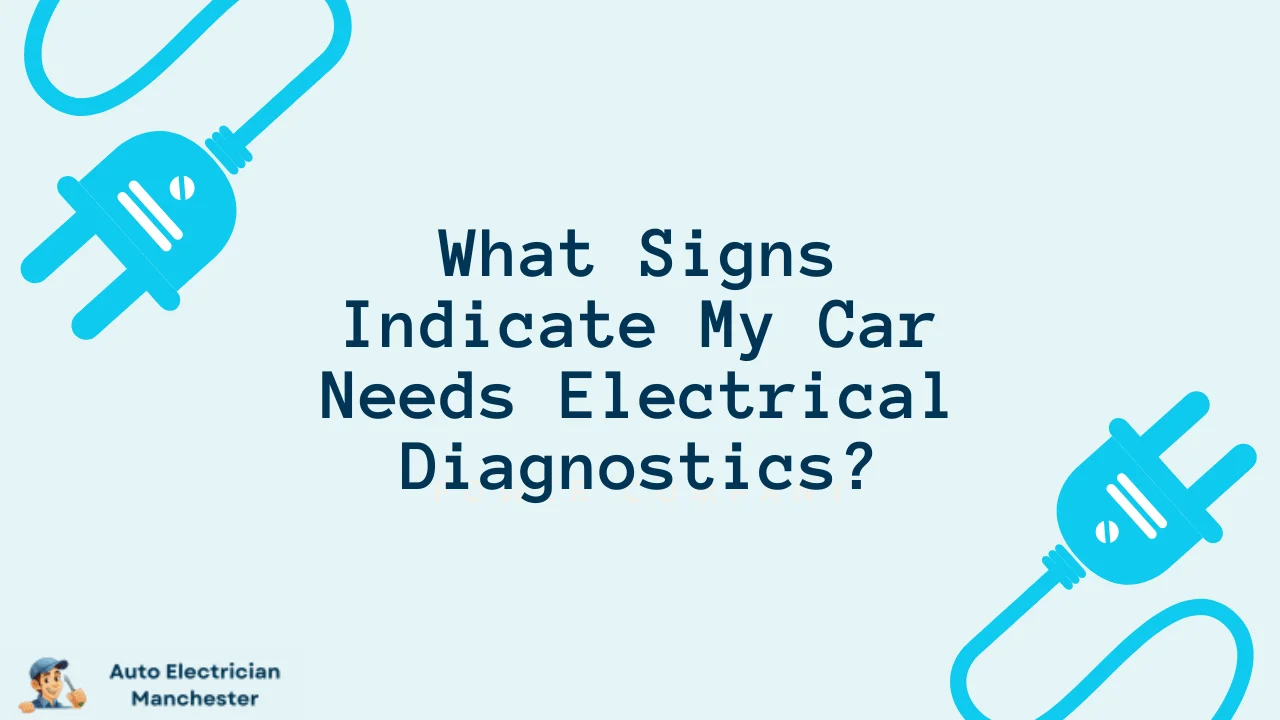
Your car’s electrical system is the heart and soul of its operation. It powers everything from the engine and lights to the entertainment system and safety features. A healthy electrical system is crucial for a smooth, safe, and enjoyable driving experience. But how can you tell if your car’s electrical system is functioning properly?
This article is designed to empower you, the driver, to recognize the warning signs that your car might need electrical diagnostics. By understanding these signs and taking prompt action, you can prevent future breakdowns, safety hazards, and costly repairs.
Understanding Electrical Diagnostics
Electrical diagnostics is the process of identifying and resolving problems within a car’s electrical system. A qualified mechanic will use specialized tools and their expertise to pinpoint the exact cause of the issue. This can range from a simple blown fuse to a more complex issue with the alternator or wiring harness.
Here are some of the key benefits of electrical diagnostics:
Early detection of problems: By catching electrical issues early on, you can prevent them from worsening and causing more extensive damage.
Improved safety: A healthy electrical system is essential for ensuring your car’s safety features, like airbags and anti-lock brakes, function properly.
Enhanced performance: A well-functioning electrical system contributes to optimal engine performance and fuel efficiency.
Peace of mind: Knowing that your car’s electrical system is in good condition gives you peace of mind on the road.
Warning Signs That Your Car Needs Electrical Attention
Your car is constantly communicating with you, and the electrical system is no exception. Here are some of the most common signs that your car might be trying to tell you it needs electrical attention:
1. Starting Trouble
Symptoms: Does your car sputter to life, crank weakly, or refuse to start altogether? These are classic signs of an electrical problem.
Possible culprits: The issue could be caused by a failing battery, a faulty alternator that’s not properly charging the battery, or even a hidden electrical gremlin lurking in the system.
Don’t ignore the jump starts: If you find yourself relying on jump starts repeatedly, it’s not a long-term solution. There could be underlying electrical issues draining your battery, and a proper diagnosis is essential to prevent future headaches.
2. Flickering Lights
Symptoms: Are your headlights, taillights, or interior lights dimming or flickering erratically? This can be a cause for concern.
Possible culprits: Voltage fluctuations are often the culprit behind flickering lights. This could be caused by a failing battery, a malfunctioning alternator, or even a loose connection somewhere in the electrical system.
Safety first: Dim headlights are not only inconvenient, but they can also be a safety hazard. Addressing flickering lights promptly ensures you can see and be seen clearly on the road.
3. Electrical Component Woes
Symptoms: Are your power windows acting sluggish, or is your radio on the fritz? Modern cars rely heavily on electricity to power a wide range of features that contribute to a comfortable driving experience.
Possible culprits: Malfunctioning power windows, radios, or other electrical components could indicate a failing electrical system or a short circuit.
Beyond convenience: Electrical component woes go beyond just creature comforts. They can sometimes point to more serious underlying issues within the system.
4. Burning Odors
Symptoms: A burning plastic or electrical scent emanating from your car is a serious red flag and should not be ignored.
Possible culprits: This pungent odor could be a sign of overheating wires or, in the worst-case scenario, a potential electrical fire.
Immediate action required: If you detect a burning odor, pull over to a safe location immediately and turn off the engine. Do not attempt to diagnose the problem yourself. Seek professional help as soon as possible.
5. Warning Lights
Symptoms: Your car’s dashboard is equipped with a variety of warning lights, and the electrical system has its own set. If the battery light or any other electrical symbol illuminates (often labeled “ALT” or “GEN”), it’s a clear message from your car.
Don’t ignore the message: These warning lights are designed to alert you to potential problems. Ignoring them can lead to more serious issues down the road.
Conclusion
Your car’s electrical system plays a vital role in its performance, safety, and overall driving experience. By understanding the warning signs and the importance of electrical diagnostics, you can take charge of your car’s health and avoid costly repairs down the road. Don’t wait until your car leaves you stranded – be proactive and ensure a smooth, safe journey for yourself and your passengers.
FAQ
Can I diagnose car electrical problems myself?
For simple issues like replacing a blown fuse, you might be able to tackle it yourself. However, for diagnosing complex electrical problems, it’s recommended to consult a qualified mechanic who has the expertise and tools to pinpoint the exact cause.

David Mack is a seasoned writer with a passion for the auto electrician niche. With years of hands-on experience and a knack for demystifying complex topics, David brings practical insights to his readers. Whether you’re a professional or a car enthusiast, his engaging articles offer valuable tips and trends in auto electrical systems.
